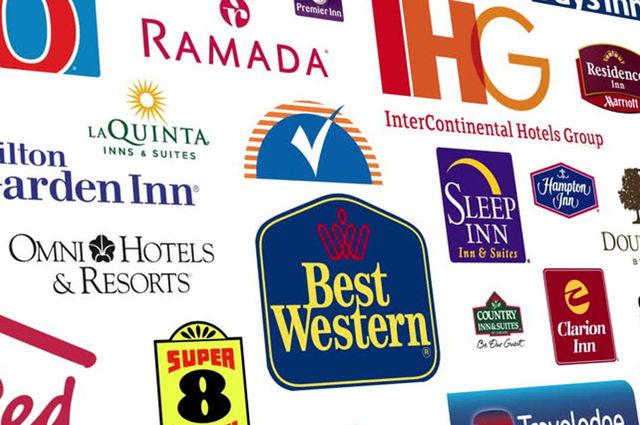Are brands becoming relevant again?
11 experts shared their view
Traditionally hotel brands largest added value has been distribution. A hotel got branded and was quite rapidly connected to a massive flow of reservations, on all the channels that existed. It helped guests search, travel agents book and hotels get filled. But that distribution function has largely been replaced by OTAs. So much so that, a few years ago the CEO of a large European Owning company publicly questioned why he should keep his hotels branded instead of going independent.
Today with brands adding new sub-brands every year it becomes unclear what a brand really is. But at the same time, the market is growing and they are making more revenue so it seems like the market accepts the new brands. Google has added a brand search functionality into their metasearch product and the conversation has shifted away from "are brands still needed". The millennial generation is supposedly not loyal to brands. Loyalty programs are getting revamped but costs are increasing. So have brands become relevant again? Are we entering a new golden age for the hotel brands?
So what is a hotel brand - where people book or a brand where people stay? Or both. Operators of hotels spend an inordinate amount of time worrying about where the client books, rather than investing into how a customer feels when they make contact with a brand for the first time That feeling is delivered via building physically and digitally great products, delivering wonderful service and providing rich experiences that reflect their total stay. Global hotel brands from the 80's onwards became transactional booking brands (distribution/loyalty) and forgot to invest in the rest whilst incrementally doing a bad job at retailing their products in the era of the internet.
Cue the now inevitable roster of 30+ “mini brands” per chain that rush to play catch-up. Iconic hotel brands of yesterday and today (from the Savoy Group through to The Standard Hotels) consistently focused “first” on those basics that all operators should do, product, service, experience and interestingly the rest all falls into place especially in an era where reputation counts for so much. In summary, operators of "stay brands"should focus on doing the day job well. The goal of any commercial leader within that stay brand should be to count the number of brand advocates they have generated rather than (overly) obsess about conversion rates & channel mix %
There is an inherent value in brands as a way of reassuring guests of a certain quality due to standards imposed by brands. Especially when going to an unknown location. While online reviews have helped independent hotels for some time it is hard to know what standards the reviewer had. Hence brands can help reassure travellers. For corporate travel - they undoubtedly play a huge role as companies don't want to negotiate with hundreds of hotels but prefer a central point of contact.
The multitude of sub-brands is a good way to retain the reassurance of a brand while offering some fresh new experiences to guests.
Traditionally, brands were providing much more than distribution as they provided a distinctiveness for hotels that allowed visitors from all over the world to recognize it and understand what will be provided. A bit like the star classification said something about quality, a long, long time ago. The OTA's have taken on exactly that challenge; "what will I get if I book this" has become extremely transparent. You should not have to worry about the brand name at the entrance to know that you will get taken care of.
Distribution has become the main battleground between the brands and the OTA's. With the latest news on the Marriott Expedia deal it seems though an axe has been buried.
In the future, it will be only more important to provide that unique experience that makes you stand out from the (sometimes) thousands of competitors in the commoditized market.
In the past hotels branded for several reasons. Foremost was the reassurance the brand gave customers as to the quality of their potential experience, with gaining access to world-class distribution, technology, expertise and loyalty program membership also becoming key motivators as we moved into a more digitally enabled world.
However, most of these 'benefits' have now disappeared. Thanks to online reviews, consumers no longer need such reassurances. Furthermore, brand proliferation to the point where no one truly understands the difference between options, coupled with the inability of brands to enforce brand standards means that the power of most hotel brands has been severely compromised. in addition, most of the side benefits have also being eroded. Today most OTAs supply not just room bookings but also technical and information services. And tech companies provide cost-effective access to systems, technologies and expertise, with the result that the advantages of brand membership are being eroded on all sides.
But such disruption does not mean that hotel brands will disappear. Instead, it should prompt a radical change in how brands are compensated. Instead of charging their traditional percentage of room revenue, most will be forced to move to a model where they only charge for business delivered through their network of controlled channels, in effect moving them firmly into the OTA space. This development will change the rules of the hotel distribution game, clarifying roles, leveling the playing field and increasing competition.
Hotel brands clearly have a future but on very different terms from today!
Are brands becoming relevant again? You bet! There are two parallel developments here that work in favor of the mega hotel brands: 1) Hotel chain consolidation: for all practical purposes, there are 8 global hotel chains left after five years of consolidation, and the process is far from over. The mega brands are becoming bigger with tremendous distribution and negotiating power with owners and OTAs alike;
2) Mega brands like Marriott and Hilton have negotiated down their OTA commissions to the 10%-12% level and OTAs contribute less than 10%-12% of their roomnights. In the same time, 50%-55% of roomnights at branded hotels come from loyalty members I.e. repeat guests. Independents rely on OTAs for 60%-80% of room nights and pay at least 2x the OTA commission vs branded hotels. Repeat guests at independents linger at the 10%-15% level. So it is a very simple math for any independent hotel owner: if I become a branded hotel, my reliance on the OTAs will decrease at least 5x, the OTA commission will decrease 2x, and my repeat guests will jump 5x. No brainer! This is why Marriott is projecting at least 1,000 new soft branded properties to join its collections like Autograph over the next few years.
Another 'exciting' are brand from the XYZ Hotel Company. Am I excited? Is the consumer excited? Doubtful. Brands without marketing support are merely exercises for marketing gurus who like to play with logos and interior designers. The whole aspect of multiple brands has nothing to do with the guest. Rather, it has to do with the hotel corporations who need more brands to sell more franchises. The more brands there are, logically the less units there are for each brand and the more diluted the accommodations field becomes. It is no wonder that younger travellers have minimal brand affiliation: the brands have not given them any reason to secure their loyalty. With one exception: younger travellers are loyal to Airbnb.
The question of 'branded vs unbranded' sets up a false dichotomy that doesn't reflect the reality of the industry. There are countless segments within hospitality: a single traveler can even belong to multiple segments based upon occasion and trip. Travelers want different things at different times and brands are always going to be part of the mix, even if some hotels leave them and choose OTAs or Google as their primary options for distribution. Likewise, it's not very helpful to think of 'brand vs no brand' on a global scale. Traveler preference varies greatly from country to country, and what is true for hotels in the US (where brands play a much larger role) will not be true for hotels in e.g. southern Europe.
The big change - Google is helping hotel tech providers level the playing field against OTAs. The ability for hotels, particular independents, to tap into alternative distribution routes is undoubtedly strengthening. Google's travel offering is becoming more prominent and accessible. Today OTAs get a quarter of their business from meta and hotels only achieve 2%. We predict Google's efforts are going to drive a massive change for independents and small chains with sufficient digital nous.
Getting smart about using Google for distribution will be a real game-changer in 2019 and 2020. Opportunities are opening up for smaller hotels to apply their website and booking engine conversion data to their metasearch bidding strategies in a way that cuts out the need for large, cumbersome distribution contracts. That might be the thing that really disrupts the appeal of the hotel brand.
Millennials - When it comes to thinking in terms of 'the millennial mindset', it can certainly be a useful paradigm to employ, but it's important to remember that millennials themselves behave in different ways at different times. As millennials age, they are likely to travel for business as much as they take vacations, and their propensity for loyalty can also change alongside that. From a personal point of view, that's certainly been the case for me. Last year, big brands improved their performance and so too did the OTAs. Online was the real winner, not brand or OTA. In fact, far from becoming irrelevant, brands have strengthened their offering in the areas they can truly differentiate themselves: loyalty and the direct customer experience.
The activity in the market today looks to be more of a 'land grab' for major multi-brand operators. The logic being that if I have enough brands across a broad range of the market from a quantity and quality perspective then I increase bargaining power and also exposure to an existing and future customer base. The latest trend appears to be that a brand can be acquired and left to carry on business under it's own guises, if only to further increase across market penetration. Distribution and customer base lies at the heart of the phenomena as a method of maintaining competition with OTA's.
The value of a brand still lies in reliability and anticipated standard of product and service by the customer. This does not always ring true, but habit and expectation sit deeply in the psyche of the customer. From the third party owners perspective, distribution, customer base and sales & marketing power at scale. Know-how perhaps slightly less so considering brand-manage and brand-franchise approaches.
A golden age? I'm not so sure. Scale play and commoditization more so.
The advent of AirBNB and other accommodation options has conditioned the customer to look beyond traditional accommodation providers. I believe it has also made independent hotels and small brands more appealing. As Google steps further in to travel and Rate Parity is addressed in more markets the conditions are improving for non-branded operators who provide a great product that resonates with the customer.
I think what we've seen is a period of acknowledgement from the larger hotel brands needing to diversify their brand options in order to stay relevant and protect market share. We've also enjoyed very strong hospitality market growth, up until this year. You're always going to see a greater number of mergers and acquisitions of brands during market peaks. The acquisition of the soft-brand Worldhotels by Best Western and of course the large Marriott acquisition of Starwood in recent years are both moves by large chain companies to diversify their brand portfolios towards boutique and lifestyle branded hotels.
It's no coincidence that brands are adding sub-brands in the boutique and lifestyle sections of the market. That is a section of the market that I feel is best equipped to compete against Airbnb and target the experiential traveler market. Its fascinating to me that Airbnb is predominantly debated as a distribution channel when it has had a far wider impact on travel trends. I think that's where many hoteliers miss the point about the rise of the experiential traveler and their desire to feel connected to a city's vibe, to its culture, its food and its people. To me, that's the threat that Airbnb poses to traditional hotels and to brands in particular because it's so hard to create if you are a cookie-cutter branded hotel.
In the last couple of years, we've seen some of the largest book direct campaigns ever produced. Hilton launched 'stop clicking around' and Marriott launched 'it pays to book direct'. Both were loyalty drives aimed at improving that distribution challenge that you mentioned in the original question. According to Phocuswright data released in February 2019, direct bookings accounted for 49% versus 51% OTA and is trending in favor of direct bookings again so it looks like that's a battle that's starting to be won by branded hotels.
I agree that loyalty schemes are losing popularity, a recent study showed that 39% of millennials believe that it is not worth it to join a loyalty program and that's a real challenge from a brand engagement perspective for the large hotel chains and their many brands. Most loyalty schemes were devised pre-internet and pre-OTAs and have had little change other than a new name and a website re-launch. Mainly it is the same tired programs that amount to little more than spam emails about credit card offers for points that no one wants to redeem anyway. I think the exception is Marriott's Bonvoy, simply due to the scale of choice of brands and because they have started incorporating experiences as part of their loyalty schemes. I believe that's directly targeted at the experiential traveler type of guest e.g. a cooking class with a Michelin starred chef or a tour by a local guide who can provide a unique local experience. They are an example of a loyalty scheme that's genuinely innovative and trying to do something different.
The Hiltons and Novotels of this world have built their brand on product integrity, standardisation and distribution. Hotel branding, then, was primarily about market access and trust creation. Today, with OTAs and social media, a B&B in Tuscany can get more traction than an Ibis downtown Paris. And, thanks to online reviews, we are able to trust and book little-known independent hotels on the other side of the world. As independent and chain hotels are increasingly competing on a level playing field, hotel brands must play a new role.
Rather than reassure, the brands of tomorrow must inspire, engage and most importantly stand for something. This is a challenge for an industry that has been operations-focused for 200 years. Hoteliers must go beyond great product and great service to take a more active role. They must provide content and substance. A hotel brand could, for instance, educate its clients about healthy living, curate information about modern art or host conferences and talks about the tech industry. I think that the winning hotel brands of tomorrow will be the ones that manage to give meaning to their product by going beyond industry boundaries. For example, Tokyo-based Koé Hotel wants to provide “new basic for new culture”. Koé is at the same time a hotel, a fashion label and a music venue.
The rise of OTAs as the primary booking channel for hotels appeared, for a while, to dispense with the need for clear hotel brands. There is no doubt that ensuring your hotel is easily discoverable through the online booking sites is now just as important to sales as your brand. Perhaps because of this there has been a growing trend in the last five years towards smaller, more 'boutique' brands emerging under the umbrella of a larger global hotel chain. But I believe this proliferation of smaller brands is reflective of the move away from a one-size-fits-all approach to hotel sales and is the natural result of the wider choice and ultimately more tailored approach facilitated by the internet.
At Avvio, we have extensive and varied experience in hotel sales and marketing and how it has been and is evolving. I don't believe hotel brands ever stopped being relevant, nor are they likely to. It is just the nature and form the branding takes that changes with customer demand.
Many claim that millennials have less brand loyalty than the generations that preceded them – probably purely because they have so much more choice – but even millennials will opt for a recognised and trusted name in some circumstances, such as when they are in a big and unknown city outside their 'safe' travel zone.
Successful branding for millennials is also more reliant on peer-to-peer marketing rather than traditional advertising. Hotels that foster great guest reviews and encourage guest-generated marketing content are likely to have more impact than those which pay for adverts.
Rather than rely on their brand to bring in sales, hotels need to take a more personalised approach; appealing to potential guests by presenting them with a tailored offering that suits their needs.
With AI technology and complex algorithms tracking customer behaviour online, this is now perfectly achievable. Online booking systems should present customers with the deals and packages curated to their specific wishes.
This doesn't dispense with the need for a strong and attractive brand, but it means companies can no longer rely on their branding to do the work for them.











